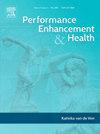From supplements to steroids: Substance use and the discourse of self-management in dominant bodybuilding culture
IF 3.7
Q2 HOSPITALITY, LEISURE, SPORT & TOURISM
引用次数: 0
Abstract
The vast array of methods promoted in a deeply commodified US bodybuilding and fitness culture includes the use of various substances. From nutritional supplements to anabolic steroids, the use of such substances has been shown to be primarily practiced not in the contained world of elite sport competition but amongst the general population. Ranging from gym-goers to clients of anti-ageing clinics, ordinary citizens have increasingly come to understand their use of such substances in terms of enhanced well-being, an indispensable technology for achieving higher standards of fitness, ability, and health. As a consequence, lobbying against State attempts to regulate such substances is put forth precisely as a defence of the right to self-govern one's own body, health, and life more generally. Focusing on the US context of the 1990s-2000s, the present paper looks at high-profile cases of regulation of such substances and the corresponding reactions inside bodybuilding culture. The latter I draw on in its capacity as an extreme yet symbolically crucial faction of the broader fitness culture that relentlessly emphasises individual responsibility and self-discipline. Ultimately, I will attempt to show how the very definition of health is not a static given but rather a core stake in these debates, as well as how the discourse of self-management is implicated in negotiating individual and group identities.
从补充剂到类固醇:物质使用和自我管理的话语在主流健身文化
在高度商品化的美国健美和健身文化中,推广了大量的方法,包括使用各种物质。从营养补充剂到合成代谢类固醇,这些物质的使用已被证明主要不是在精英体育比赛的封闭世界中,而是在普通人群中。从健身房的常客到抗衰老诊所的顾客,普通公民越来越多地认识到,他们使用这些物质是为了增强健康,这是达到更高标准的健身、能力和健康所不可或缺的技术。因此,游说反对国家管制这类物质的企图,恰恰是为了捍卫对自己的身体、健康和更普遍的生活进行自治的权利。本文以20世纪90年代至21世纪初的美国为背景,研究了这类物质监管的高调案例,以及健美文化中相应的反应。后者是更广泛的健身文化中一个极端但具有重要象征意义的派别,它坚持不懈地强调个人责任和自律。最后,我将试图展示健康的定义如何不是一个静态的给定,而是这些辩论的核心利害关系,以及自我管理的话语如何涉及个人和群体身份的谈判。
本文章由计算机程序翻译,如有差异,请以英文原文为准。
求助全文
约1分钟内获得全文
求助全文
来源期刊

Performance enhancement and health
Social Sciences-Health (social science)
CiteScore
4.70
自引率
0.00%
发文量
27
审稿时长
57 days
 求助内容:
求助内容: 应助结果提醒方式:
应助结果提醒方式:


